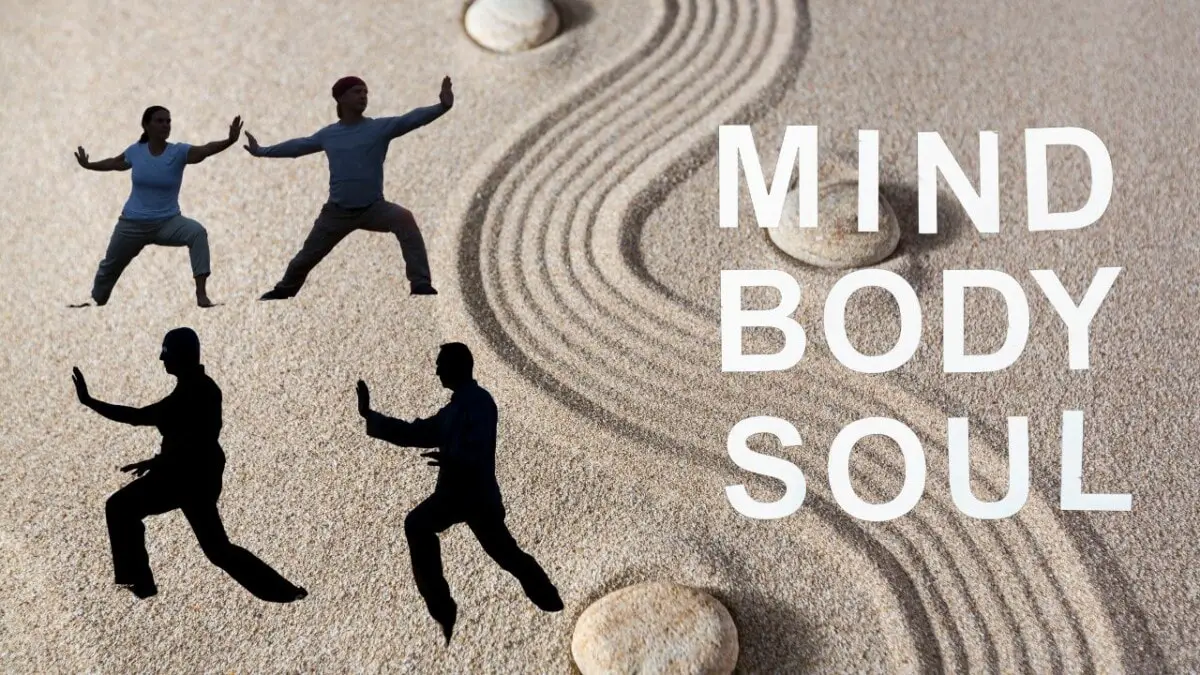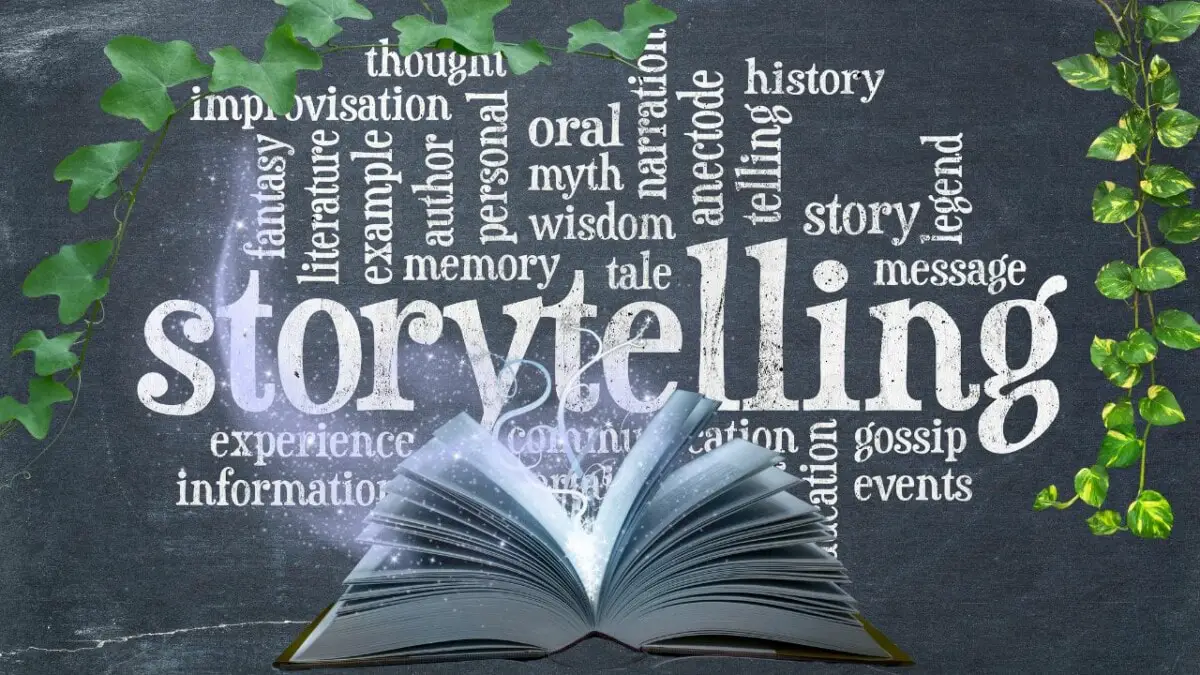Karaoke, when utilized purposefully, can serve as an effective learning tool. This article will delve into various ways in which karaoke can be leveraged for personal growth and skill development.
Karaoke can be used as a learning tool by improving language skills through singing along to lyrics. It improves pronunciation, vocabulary, and comprehension in a fun and engaging way. Karaoke can also promote confidence and public speaking skills as individuals perform in front of a group. To go deeper into how karaoke can be utilized for learning, consider reading the full article for a comprehensive understanding of its benefits.
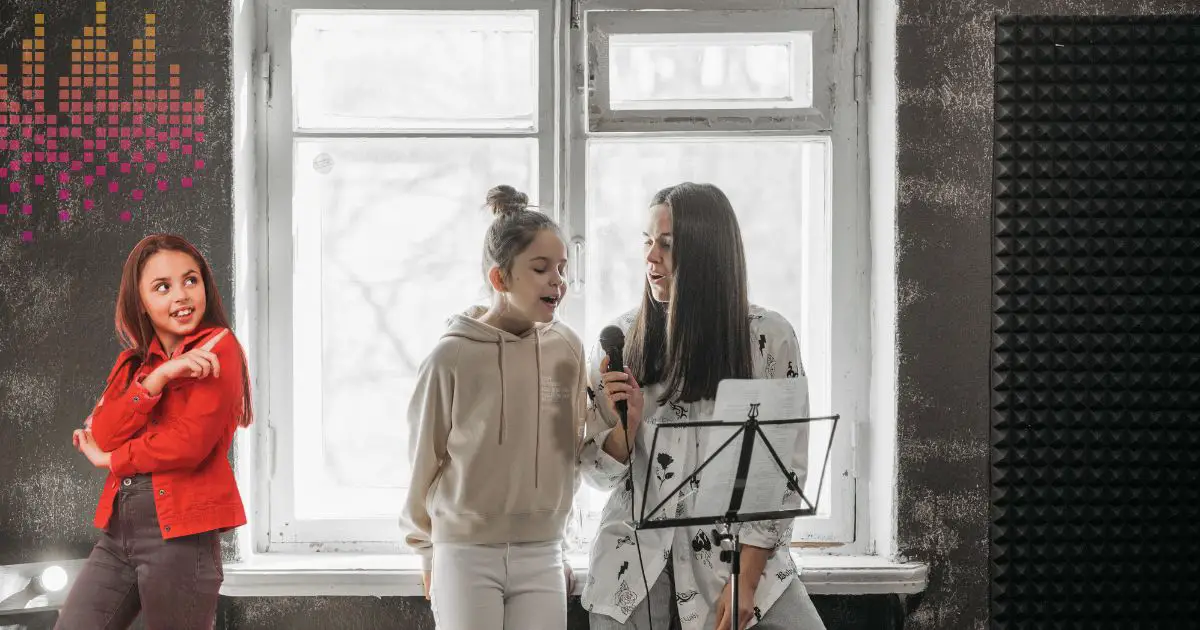
Strategies to Use Karaoke as a Learning Tool
Often viewed as entertainment, karaoke offers strategic integration potential in diverse educational pursuits. The following strategies present an effective method of harnessing karaoke’s potent learning power:
1. Selecting Relevant Songs:
Incorporate karaoke into your learning strategy by strategically selecting songs that align with your objectives. For language learners, choose tunes in the target language. This will bolster vocabulary, and enhance pronunciation and listening skills. Likewise, if you aim to amplify musical skills, handpick challenging pieces that stretch not only the vocal range but also rhythm perception and stylistic adaptability.
2. Active Participation:
Sing along with the lyrics and immerse yourself in the music to actively engage during karaoke sessions. Concentrate on clear enunciation, aligning your voice’s melody and rhythm with that of the song, as well as infusing emotion into your performance. Actively participating in these sessions serves as a reinforcement for learning concepts through hands-on practice and experiential learning.
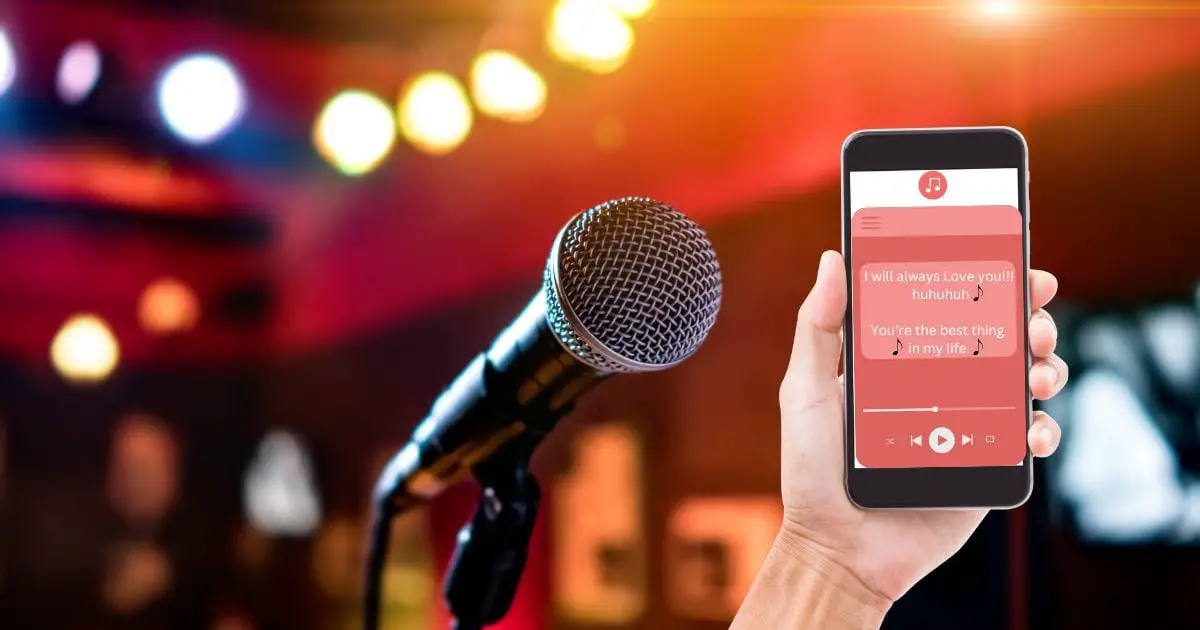
3. Utilizing Karaoke Apps and Platforms:
Seize the opportunities presented by karaoke apps and online platforms, which boast an extensive array of songs and interactive elements. These platforms frequently equip users with lyric displays, pitch correction tools, and even recording capabilities. Thus, making skill practice or refinement a breeze. Further enhancing their utility, some applications incorporate language-learning functionalities like translation aids along with pronunciation guides. This effectively integrates linguistic acquisition into your karaoke experience.
4. Incorporating Feedback and Self-Assessment:
Ask for feedback from your peers, instructors, or online communities to objectively evaluate your karaoke performances. Focus on identifying areas for improvement such as pronunciation errors, pitch accuracy, and stage presence. Make a concerted effort to address these in subsequent practice sessions. Also engage in self-assessment by recording each of your karaoke sessions, and critically evaluating every performance. This will enable you to discern both strengths and weaknesses with greater precision.
5. Setting Learning Goals:
Establish clear, achievable learning goals. They will serve as your compass for effective karaoke practice sessions. Aim to master a specific song, enhance language proficiency, or even conquer stage fright.
The act of setting measurable objectives not only provides direction but also fuels motivation throughout your journey in learning. Divide large aspirations into smaller milestones. This strategy ensures accountability and maintains motivation by enabling you to track progress over time. This is an essential tool in the pursuit of continuous improvement.
6. Integrating Multisensory Learning Techniques:
Incorporate multisensory learning techniques to boost the effectiveness of karaoke as a tool for education. As you sing along, visualize song lyrics. Express rhythm and emotion through engaging kinesthetic movements. Listen intently to the music’s dynamics and nuances. By simultaneously stimulating multiple senses, you strengthen neural connections involved in learning processes, a strategy that deepens your grasp of both musicality and linguistic concepts.
7. Cultivating a Growth Mindset:
Embrace karaoke practice with a growth mindset. Welcome challenges and view setbacks as opportunities for learning and improvement. Along the way, regardless of their magnitude, celebrate progress and achievements. Sustain an optimistic attitude towards the learning process. Keep in mind that mastery demands time and effort, each karaoke session bestows invaluable insights into personal growth experiences.
Incorporate these strategies into your karaoke practice sessions. They can transform them into potent learning experiences, enhancing not only your skills and confidence but also the enjoyment of the process. Be it as a language learner, an aspiring musician or someone simply seeking personal development, karaoke offers an accessible platform that is dynamic for continuous growth through lifelong learning.
Benefits of Karaoke for Learning
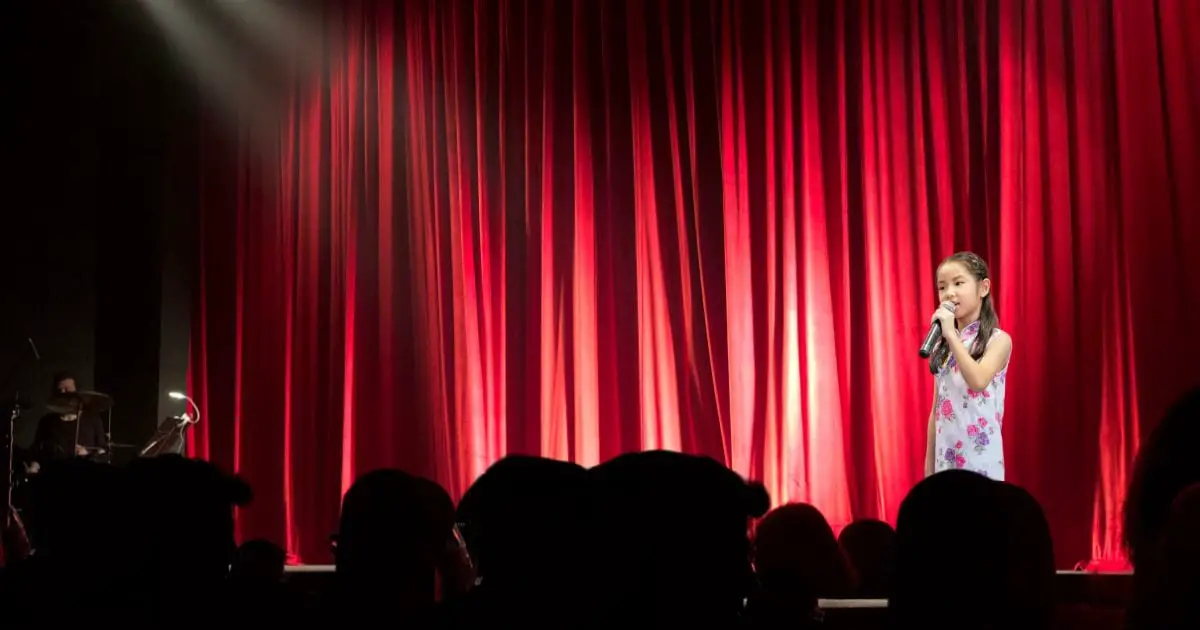
1. Improving Language Proficiency
Karaoke is a lively, captivating strategy for language learners to refine their skills. As they sing along with songs in the target language, immersing themselves in authentic pronunciation, intonation, and vocabulary usage, these learners experience an immersive environment that fosters better listening comprehension and oral fluency. Consequently, making the process of learning a new language more dynamic and enjoyable.
2. Enhancing Public Speaking Skills
In the world of Karaoke, individuals find a low-pressure environment to hone their public speaking skills. Whether they perform solo or as part of a group, participants can cultivate stage presence, enhance vocal projection, and bolster confidence in front of an audience. Frequent karaoke sessions over time not only alleviate stage fright but also instill poise and self-assurance in various social settings.
3. Fostering Musical Aptitude
Karaoke, beyond providing linguistic benefits, actively fosters musical talent and appreciation. Regular singing practice enables individuals to refine pitch accuracy, a crucial aspect of any vocal performance, perceive rhythm effectively, and master vocal technique. Exploring a myriad of diverse genres not only enhances understanding of various musical structures but also exposes singers to numerous artistic expressions. This broadens their creative horizons significantly.
4. Improving Memory Retention:
Engaging in karaoke activates multiple cognitive processes such as auditory processing, visual recognition, and motor coordination. This activation enhances memory retention and recall. When one sings along to familiar songs, a process that involves the memorization of lyrics, melodies, and rhythms, it stimulates brain regions associated with memory formation as well as consolidation. Due to an emotional connection with music, it reinforces the encoding of memories even more firmly. Thus, making karaoke a potent mnemonic device for learning or retaining information at hand.
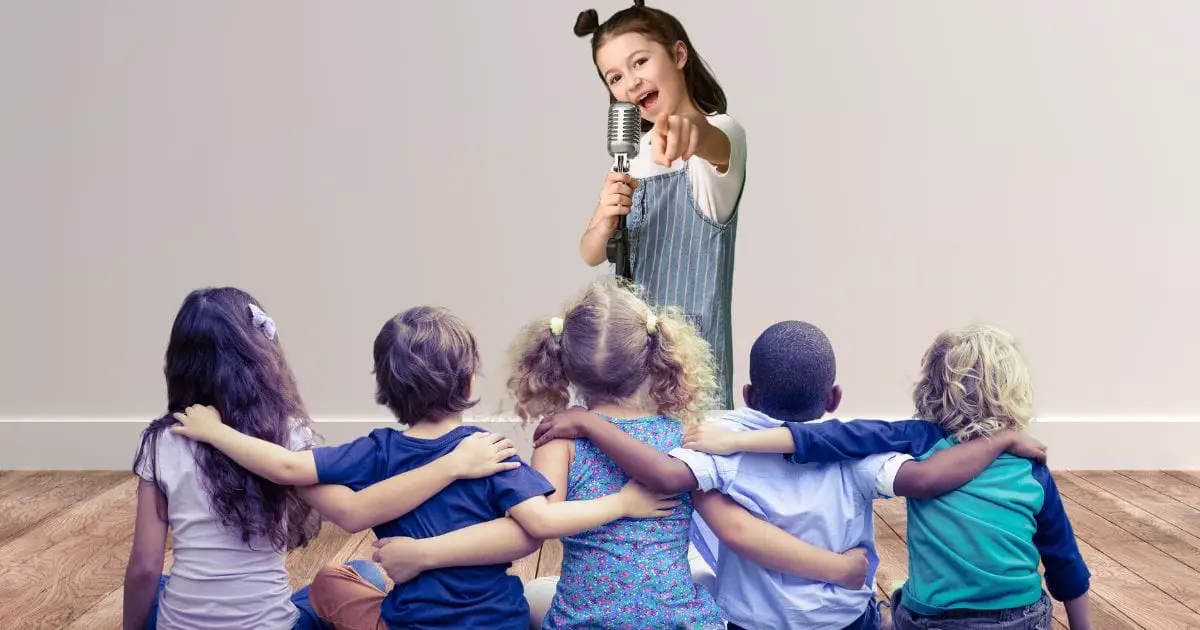
5. Building Social Skills:
Engaging in karaoke cultivates social interaction and collaboration and offers a supportive, non-judgmental space environment conducive to developing interpersonal skills. Karaoke promotes communication, teamwork, and empathy. As participants alternate between singing solo or within groups, they cheer one another on while sharing feedback. This dynamic social engagement enhances not only confidence but also self-expression. Fostering empathy and mutual respect amongst all involved truly contributes towards overall societal growth.
6. Boosting Self-Confidence:
Karaoke is more than just a fun activity. Rather, this interactive form of entertainment provides individuals with an opportunity to venture out of their comfort zones, conquer performance anxiety, and cultivate self-confidence in their abilities.
When facing the challenge of singing in front of others, participants incrementally master inhibitions and fear. These are commonly known as stage fright or self-doubt issues. They gradually yield a sense of accomplishment and empowerment after each successful performance. Furthermore, when peers offer positive feedback coupled with encouraging sentiments, it not only bolsters one’s esteem but also nurtures an image-filled positivity, a combination that drives individuals towards continuous boundary-pushing for personal growth.
7. Unlocking Hidden Talents with Karaoke
Participating in karaoke not only offers mood regulation benefits but also serves as a tool for honing additional skills. By incorporating dance moves into karaoke performances, you can enhance your dancing abilities alongside your singing prowess.
Furthermore, acting skills are developed as you embody the emotions and personas of the songs you perform by making sad or happy faces based on the song you singing, refining your ability to express yourself through facial expressions and gestures. This multifaceted approach to karaoke can offer valuable opportunities for personal talent development.
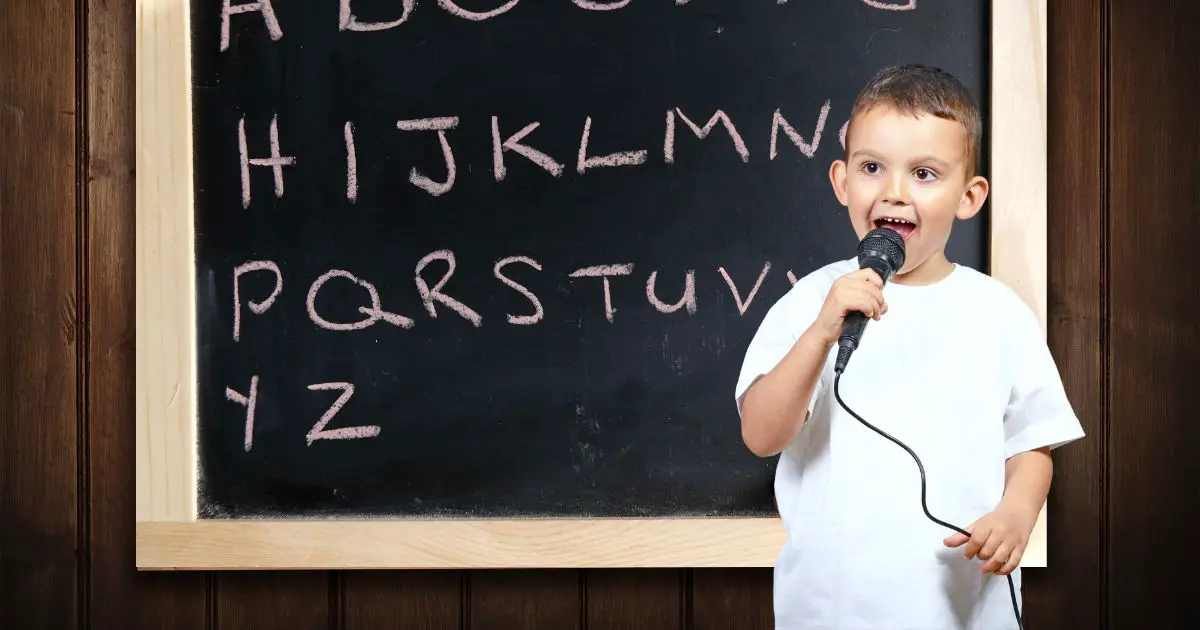
Applying Karaoke Across Various Learning Domains:
Beyond language acquisition and musical skill development, karaoke’s versatility proves applicable across diverse learning domains. Let’s explore methods to integrate karaoke into various areas of learning:
1. Academic Enhancement:
In academic settings, educators can incorporate karaoke to bolster learning concepts and foster interactive experiences. They might devise custom tracks with educational content, depicting historical events, and encapsulating mathematical formulas or scientific principles. The aim is a memorable engagement that innovatively entertains students. Through the metamorphosis of academic material into catchy songs and lyrics, karaoke spurs student participation in learning activities; it stimulates the retention of crucial concepts and even catalyzes a deeper comprehension of complex topics.
2. Personal Growth and Well-Being:
Karaoke, beyond its role in academic and professional development, functions as a potent instrument for fostering personal growth and well-being. It allows individuals to harness self-expression, relieve stress, and experience emotional catharsis via the channel of music. Whether they choose uplifting anthems or power ballads, whether their lyrics express vulnerability or resilience, karaoke provides an invaluable tool not only for processing emotions but also for building up one’s resilience. Participating in karaoke events also fosters social connections and encourages community engagement which is a vital aspect of our mental health.
3. Cultural Appreciation and Global Awareness:
Exploring songs from diverse regions and languages through Karaoke, individuals gain insights into the rich tapestry of human expression and creativity. This process broadens their perspectives, and cultivates empathy towards other cultures, fostering cultural appreciation while promoting global awareness among participants.
Karaoke also serves as a bridge for cross-cultural communication. It effectively bridges both linguistic barriers and geographical distances using music. Karaoke is a universal language that transcends borders. It celebrates the collective human experience of music and melody, whether through traditional folk songs, contemporary pop hits, or globally recognized anthems.
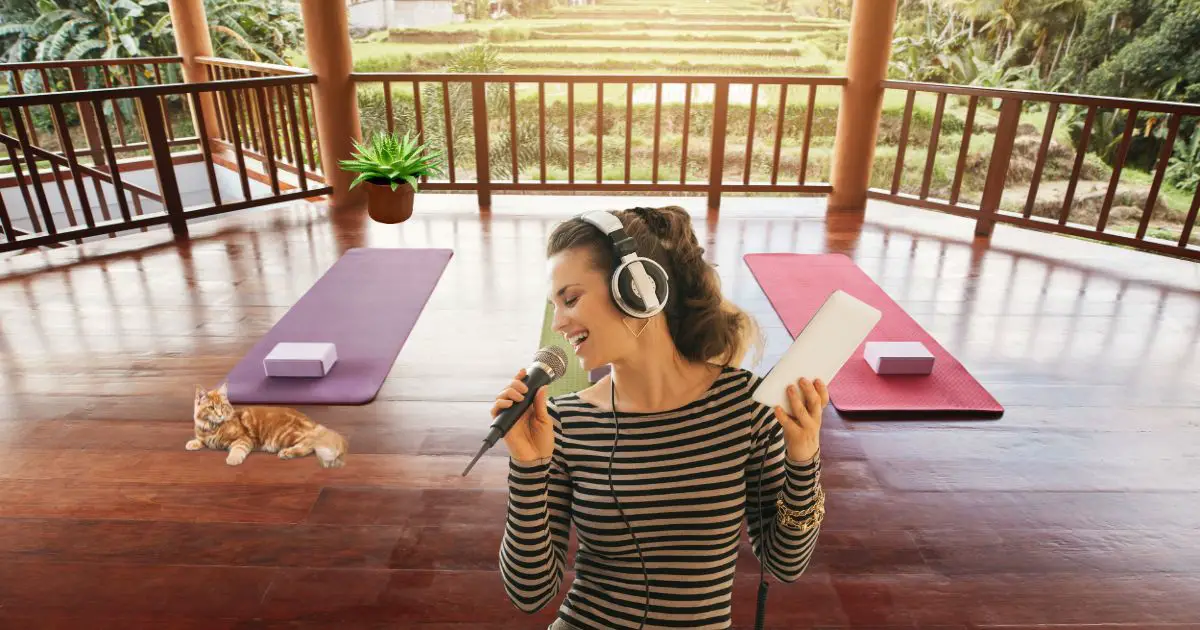
Karaoke as a Therapeutic Tool:
Karaoke, aside from offering educational and recreational advantages, has emerged as a therapeutic instrument for individuals grappling with diverse physical, emotional, and psychological obstacles. The following outlines the potential therapeutic uses of karaoke:
1. Music Therapy Applications:
The principles of music therapy, a clinical practice employing musical interventions to address physical, emotional, cognitive, and social needs, align particularly with karaoke. Licensed music therapists, incorporating this activity into their sessions, promote relaxation. They facilitate self-expression and encourage emotional processing.
Clients explore personal issues such as trauma, grief anxiety, or depression through singing, listening, and even improvising in some cases to work through these challenges within the safety provided by our supportive environment. The interactive nature of Karaoke fosters active participation, empowering clients to repossess their voices; and express emotions. Ultimately, it allows them to re-establish a connection with their inner selves.
2. Stress Reduction and Mood Elevation:
Participating in karaoke is an activity that can profoundly affect mood regulation and stress management. It serves as a powerful tool. Singing triggers the release of endorphins. These neurotransmitters are associated with pleasure and well-being. As such, they not only alleviate feelings of stress and anxiety but even tension is reduced significantly through this process.
Music also evokes nostalgia, prompts positive memories, and importantly, fosters comfort along with a sense of familiarity. This further bolsters mood elevation while concurrently fortifying emotional resilience. Individuals, whether they sing solo in the comfort of their homes or join karaoke sessions with friends, experience a sense of catharsis and rejuvenation through musical expression.
3. Rehabilitation and Motor Skill Development:
Karaoke provides a vibrant and captivating avenue for individuals engaged in physical rehabilitation or motor skill development. It elevates their coordination, dexterity, and mobility. The act of singing itself, the coordinated movement involving the vocal cords, diaphragm, and respiratory muscles strengthens muscle tone and enhances breath control. Through its encouragement of rhythmic movements, gestures along body language, it propels gross as well as fine motor skill development into action.
Individuals recovering from injury, illness, or neurological conditions can benefit by incorporating karaoke into their rehabilitation programs. This inclusion promotes not only physical recovery but also functional improvement.
Conclusion
In short, Karaoke is more than just entertainment. It represents a valuable tool for personal growth and skill development. Whether your aspirations lean towards enhancing language proficiency, conquering stage fright, or cultivating musical talent.
Karaoke manifests as an adaptable platform promoting self-expression and learning. Through the establishment of clear objectives, the pursuit of constructive feedback, and a willingness to tackle novel challenges, one can leverage Karaoke’s power not only to learn but also to go on an enriching journey towards self-improvement. Next time you approach the karaoke mic, remember that your performance is not merely for amusement. It’s an opportunity to foster personal development through singing.
By AL Tran
Source:
- Brkic Bakaric, Marija, et al. “The Prospects of Karaoke as a Teaching Method in Primary Education.” The Turkish Online Journal of Educational Technology, vol. 19, no. 4, 2020, files.eric.ed.gov/fulltext/EJ1272853.pdf.
- Gupta, Abha, and Gupta. “Karaoke: A Tool for Promoting Reading. Reading Matrix: An International Online.” Journal, vol. 6, no. 2, 2006, pp. 80–89, digitalcommons.odu.edu/cgi/viewcontent.cgi?article=1000&context=teachinglearning_fac_pubs.
- Karsono, Karsono. “The Effect of Using Karaoke Activities on Students� English Pronunciation.” JET (Journal of English Teaching), vol. 5, no. 3, 20 Oct. 2019, p. 179, https://doi.org/10.33541/jet.v5i3.1311.
- Ross, Travis. Designing an Instructional Intervention Using Karaoke to Develop Designing an Instructional Intervention Using Karaoke to Develop Key Reading Skills Key Reading Skills.



